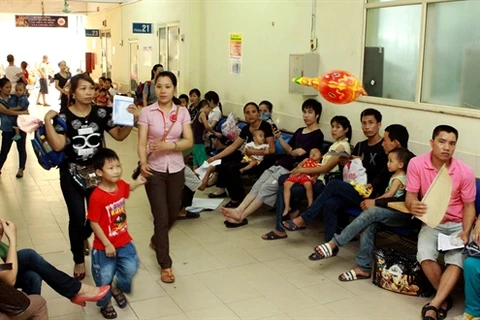Da Nang (VNA) – The General Department of Preventive Medicine and the World Health Organisation (WHO) in Vietnam co-organised a press seminar on the prevention of Zika virus disease and summer diseases, with the participation of reporters from 14 central and Central Highlands localities.
Participating reporters were updated on information about the Zika disease in the world and in Vietnam, as well as the developments of summer diseases and preventive measures.
According to statistics of the department, from January 2007 to May 2016, Zika virus spread to 70 countries and territories worldwide.
In Vietnam, two Zika virus cases were reported in Ho Chi Minh City and Khanh Hoa province in early April. Three weeks later, the country announced the end of Zika virus.
However, the department’s deputy head Truong Dinh Bac said that the disease still may occur in Vietnam as the Aedes Aegypti mosquito, the main carrier of Zika and dengue viruses, is common in Vietnam.
He asked provinces and cities nationwide to continue preventive measures, such as collecting samples of patient blood and body fluids to test for Zika virus, killing mosquitoes and larvae, and preparing sufficient medicine and equipment to serve patients in case the disease occurs.
Statistics from the department also show that in the first four months of this year, the number of encephalitis cases reduced by 41.9 percent from the same period last year, while the number of hand-foot-mouth cases also decreased 23.2 percent.
The department predicts that several summer diseases such as influenza, diarrhoea, hand-foot-mouth, dengue and chickenpox will break out, mainly from May to August.
The department recommends people ensure food hygiene and safety, wash their hands with soap, drink enough water, and eat more fruit and vegetables to improve their resistance against diseases.-VNA
























